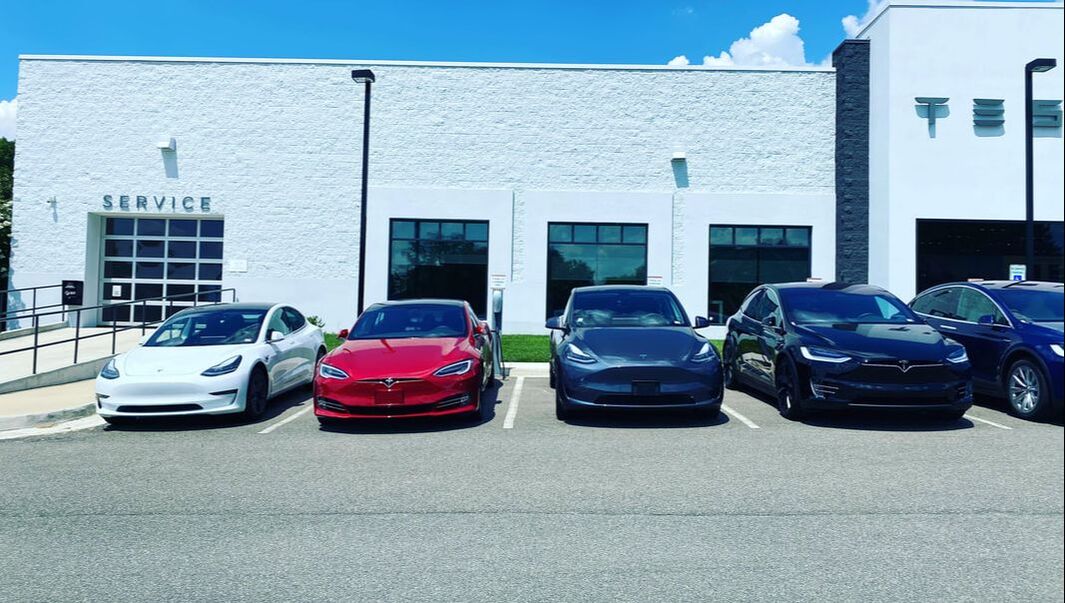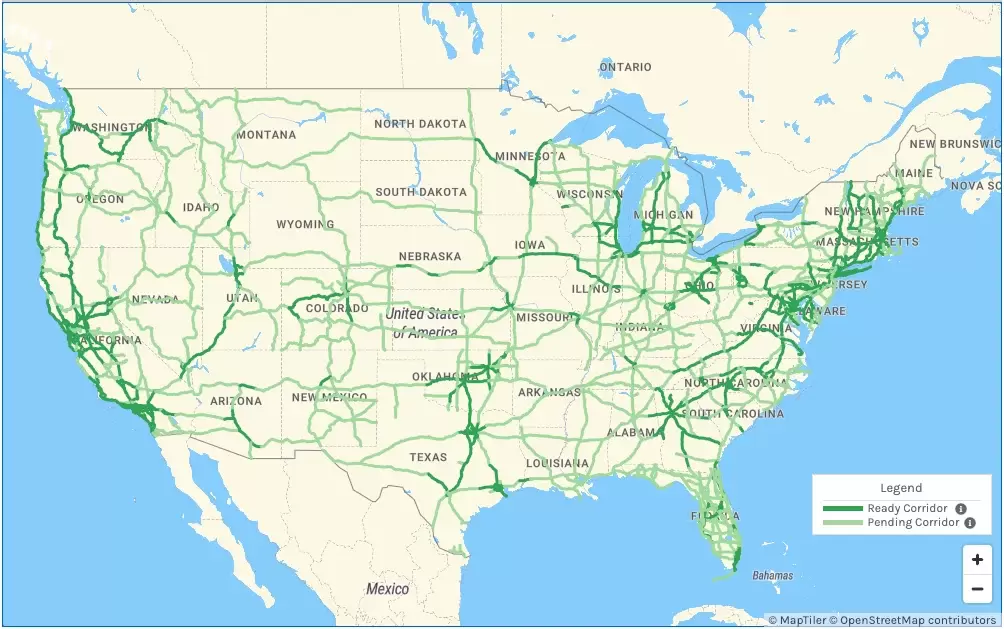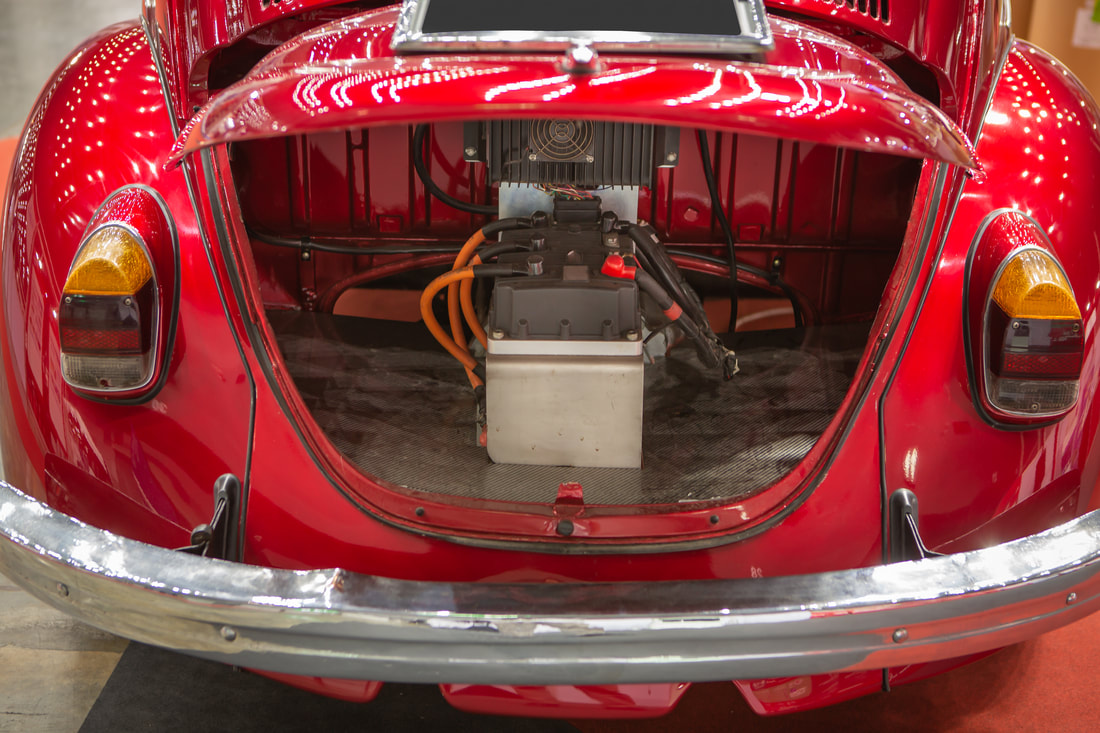|
If you purchase a new all-electric, plug-in hybrid, or fuel cell electric vehicle in 2023 or later, you may be able to claim a federal income tax credit of up to $7,500. However, eligibility for the credit depends on several factors, such as the vehicle's manufacturer suggested retail price (MSRP), where it was assembled, and how its battery components and critical minerals were sourced. Additionally, the credit amount may be subject to reduction based on your modified adjusted gross income (AGI).
Pre-owned vehicles purchased in 2023 or after are eligible for a tax credit of up to $4,000. Changes to this list are ongoing, some qualified manufacturers have yet to submit information on eligible vehicles that meet the requirements for vehicles placed in service on or after April 18, 2023. Please check back for updated information. Federal Tax Credits for Plug-In Electric Vehicles Purchased in 2023 or after
(Vehicle placed into service on or after April 18, 2023)
Last updated 4/23/2023
4/9/2023 Biden-Harris Administration Drives Affordable EVs Forward, Putting America First in Green Transport RevolutionRead NowIn a bold move to put America first in the green transport revolution, the Biden-Harris Administration has announced a series of new private and public sector investments aimed at making electric vehicles (EVs) more affordable and accessible to the average American. The initiative seeks to create thousands of jobs, boost economic growth, and ensure a cleaner, more sustainable future for the nation.
As part of the ambitious plan, the Biden-Harris Administration is allocating $5 billion over the next five years to expand EV charging infrastructure across the country. This move will significantly improve accessibility and convenience for EV owners while reducing the range anxiety often associated with electric vehicles. The administration is partnering with local governments, utility companies, and private enterprises to ensure that charging stations are installed in strategic locations, providing easy access for EV users. Additionally, the administration has unveiled a new tax credit for American EV manufacturers, designed to incentivize the production of more affordable, cutting-edge electric vehicles. This tax credit will help level the playing field for American manufacturers and promote competition in the global EV market, ultimately benefiting consumers with lower prices and better options. The White House has also announced a $3 billion investment in research and development (R&D) for advanced battery technology. This funding is expected to accelerate breakthroughs in battery performance, reliability, and cost, making electric vehicles even more appealing to consumers. The investment will support the efforts of the Department of Energy's national laboratories, universities, and private sector partners, fostering collaboration and innovation in the EV industry. In a further move to promote domestic production and job creation, the administration is encouraging American companies to take advantage of the Advanced Technology Vehicles Manufacturing (ATVM) loan program. This program offers low-interest loans to help manufacturers retool their facilities and develop advanced technology vehicles. By supporting American manufacturing, the Biden-Harris Administration aims to strengthen the nation's position in the global EV market and create well-paying jobs for American workers. Recognizing the importance of workforce development in the EV industry, the administration is also dedicating $900 million to the creation of a new Community College Consortium for Electric Vehicle Manufacturing. This initiative will provide grants to community colleges, enabling them to develop and expand EV manufacturing training programs. As a result, the next generation of American workers will be better equipped to meet the demands of the growing EV industry. The Biden-Harris Administration's commitment to promoting affordable electric vehicles is a clear indication of their determination to put America first in the green transport revolution. By investing in infrastructure, R&D, and workforce development, the administration is not only ensuring a cleaner, more sustainable future for the nation but also creating thousands of jobs and strengthening the economy. As the world moves towards cleaner, greener modes of transportation, the Biden-Harris Administration's recent announcements are a testament to their dedication to leading the way in the EV revolution. By supporting American innovation and manufacturing, the administration is securing America's place at the forefront of the global green transport movement and ensuring a brighter, more sustainable future for all. Source: White House Statement
Mississippi Governor Phil Bryant has signed a new law that bans direct in-person sales of electric cars, requiring instead that all sales go through traditional dealerships. The move means that electric car manufacturers such as Tesla, Rivian, Lucid, and others will no longer be able to sell their vehicles directly to consumers in Mississippi.
While the new law was opposed by some Republican lawmakers in the state who called for a veto, it ultimately passed with overwhelming support from both Republican and Democratic legislators. Supporters of the law argue that it will protect consumers by ensuring that all car sales are subject to the same regulations and consumer protections as traditional dealerships.
Under the new law in Mississippi, carmakers are allowed to make direct sales in two ways. Firstly, through online sales as H.B. 401 doesn't regulate digital storefronts. Secondly, companies that own only one dealership and have held a dealer license since August 2021, and exclusively sell electric vehicles, can continue their business unimpeded. This exception seems to apply to only one establishment, the Tesla store in Brandon, Mississippi.
Critics of the law, however, argue that it is a protectionist measure designed to prop up traditional dealerships and limit competition, and that it will ultimately harm consumers by limiting their choices and increasing prices. Mississippi is not the only state to have banned direct sales of electric cars; other states, including Texas and Michigan, have similar laws in place. Electric car manufacturers have fought against these laws in court, arguing that they are unconstitutional and anti-competitive, but so far they have been unsuccessful in overturning them. The debate over direct sales of electric cars is likely to continue, as more and more consumers turn to electric vehicles and traditional dealerships seek to protect their market share. As the electric car industry continues to grow, it remains to be seen whether states will continue to ban direct sales or whether they will embrace new models of car sales that offer consumers more choice and competition. It is important to note that laws and regulations surrounding electric car sales can change over time as political and economic factors shift. If you have questions or concerns about electric car sales in your state, it is best to consult with local experts or government officials for the most up-to-date information.
California is poised to make converting an internal-combustion vehicle to electric slightly less expensive with a new bill that proposes offering up to $2,000 to owners who convert their gas-guzzling cars to electric ones.
Brought forth by Senators Portantino and Newman, California Senate Bill 301 suggests offering a tax rebate of up to $2,000 for individuals who switch their traditional fuel-powered vehicles to zero-emissions vehicles (ZEVs), which can either be battery-powered or hydrogen-powered. The Specialty Equipment Market Association (SEMA) supports this bill, stating that it will aid small businesses and workers, increase access to ZEV ownership, and preserve California's car culture. "The aftermarket is a leader in innovation, and that includes in zero-emissions technologies," commented SEMA President and CEO Mike Spagnola said in a statement by the company. "SB 301 creates opportunities for our California-based small businesses, their employees, and consumers to build and have access to affordable zero-emissions vehicles." The proposed rebate would be in addition to other state-level incentives for electric vehicles, such as Clean Cars 4 All and up to $7,000 in rebates through the Clean Vehicle Rebate Program. However, the EV conversion fund would be considerably smaller, with only $2 million allocated annually for the aftermarket rebate option. At first glance, this proposal may seem like a fantastic idea. But like many political proposals however, the actual impact is likely to be minimal. When we examine the funding allocation closely, it becomes apparent that only 1,000 EV conversions can be supported with the meager $2 million budget. This figure is so small compared to the number of internal-combustion vehicles on California streets that its effect would be almost negligible. Additionally, as anyone who has ever attempted to budget for a conversion project will quickly tell you, even if they perform all the labor themselves, a successful EV conversion requires up to as much as 10 times the amount that the proposed rebate provides. $2,000 towards a project that often costs $20,000 or more is not a considerable sum, especially when considering that the converted vehicle must have a range of at least 100 miles, requiring a decently sized battery pack. The bigger the battery pack, the higher the cost. Hopefully in the future, the costs of an EV conversion will come down. Until then, we should celebrate (maybe?) this small step towards tackling the larger challenge of reducing carbon emissions. It may be a very tiny step, but it is a step in the right direction. New York City Mayor Eric Adams announced on Thursday that Uber and Lyft will need to transition their fleets to zero emission vehicles by the year 2030. This decision, which affects roughly 100,000 for-hire cars in one of the world's major ride hailing markets, will set a precedent for other cities around the US to follow. The move, which builds on ongoing efforts to electrify the thousands of city fleet vehicles, also includes plans to increase EV charging points across all five boroughs. Adams is expected to task the city’s Taxi and Limousine Commission to implement the plan, as that department already regulates the for-hire vehicle industry for the city. While usually resistant to any outside mandates, Uber and Lyft previously made their own announcements to have fully electric fleets and have responded positively to the Mayor's announcement. Paul Augustine, Lyft’s director of sustainability, said in a statement: “We are excited to partner with New York City on our journey. New York’s commitment will accelerate an equitable city-wide transition to electric, and we’re eager to collaborate with the TLC on an ambitious plan for a ride share clean mile standard.” Josh Gold, senior director of policy at Uber, also added: “We applaud the Mayor’s ambition for reducing emissions, an important goal we share. Uber has been making real progress to become the first zero-emissions mobility platform in North America, and there’s much more to do.” The transition to electric vehicles for ride hail drivers won't happen overnight - it poses a unique challenge, given that many of them are independent contractors who use their own cars and have limited financial resources. Despite the promising potential savings in fuel costs and maintenance over time, EVs often come with a steep initial investment; something cash-strapped gig economy operators may not be able to afford. The City of New York isn't the first major market to make such an announcement. In 2021 California adopted new rules requiring ride-sharing companies to electrify their fleets by 2030 as well. While some people are lauding the move as ambitious and much needed in order to combat climate change, others are skeptical of how such a large-scale transition will take place.
What do you think about this? Is this plan feasible? Leave a comment below and let us know your thoughts. |
Details
Categories
All
Archives
June 2024
|
||||||||||||||||||||||||||||||||||||||||||||||||||||||||||||||||||||||||||||||||||||||||||||||||||||||||||||||||||||||||||||||||||||
- Home
-
Learn.
-
EV 101
>
- EV Terminology
- What is an EV?
- Pros and Cons
- EV Types
- Are used EVs a good option?
- How much range do you really need?
- Real world range
- Types of charging and charging stations
- How Long Does It Take To Charge
- EV Charging Apps
- All about EV Batteries
- Regenerative Braking
- BEV System Components
- EV Maintenance
- EV Mythbusting >
- Podcast
- Newsletter
- Magazine
- Articles >
- Vehicle Reviews
- Alternative Fueling Station Locator
-
EV 101
>
- Connect.
- Experience.
- Deals
- Shop
- About Us











